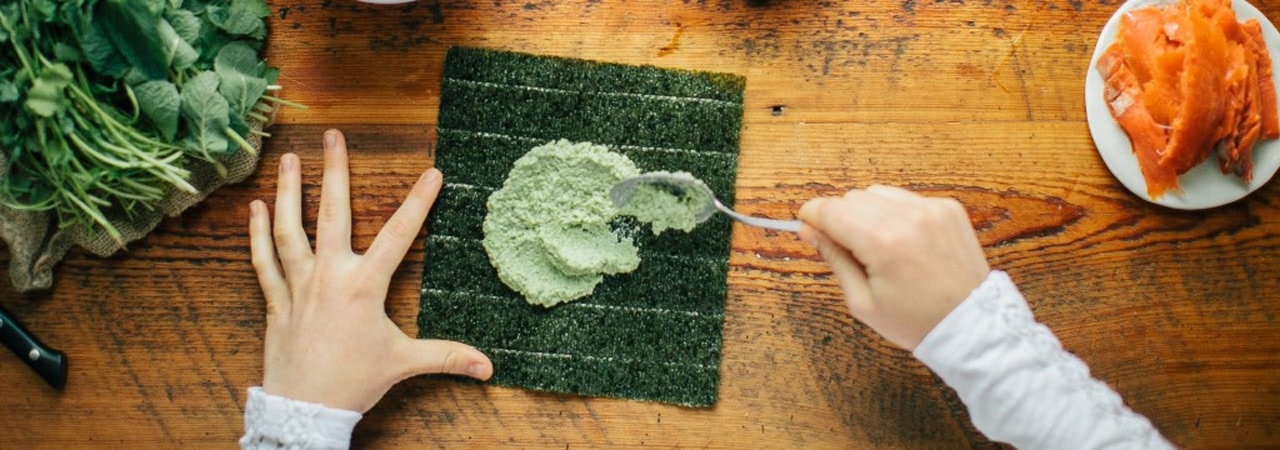Norwegian cuisine is known for its savory meatballs, sweet and salty cured salmon and… nori. That’s right, nori. Researchers in Trondheim have succeeded in growing the red Porphyra algae in laboratory for the first time, handing themselves all the right ingredients to become the frontrunner of commercial macroalgae cultivation.
Nori, or “seaweed sushi paper” is world’s most valuable macro algae and it is commonly renowned for its high protein content, delicious taste and richness in vitamins and minerals. Japan is the nori market leader with a production of 350.000 ton per year, and it is accountable for respectively 10% of the production on a global scale. To put this in context, Norway currently holds just the 2,6% of the market. But that’s about to change, as Norway is paving the way to become a serious competitor in the nori market, through laboratory cultivation processes.
Marine biologist Andreas Quale Lavik, who dedicated his Master’s thesis to the research of this process explains: “Initially, the researchers isolated mature sex cells and placed them in Petri dishes under artificial light for six months. These developed into what is called the conchocelis phase. The next step was to change the lighting regime to induce the cells and enable them to produce new spores called conchospores. After about two months, these conchospores succeeded in growing into new, individual plants”.
Seaweed is rapidly growing in the European market and according to researchers it has the potential to become a “superfood”. Keeping in mind there are about 70 different species of red Porphyra seaweeds around the world, the cultivation of these species through laboratory processes would mean profitable results for local aquaculture, and it will contribute to enrich the Norwegian cuisine.

Share your thoughts and join the technology debate!
Be the first to comment